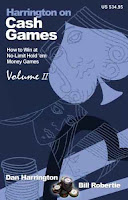Do Not Ask for Whom the Tells Show
 Gonna be a lot of folks standing in line today as America finally decides who will be our next president. Lots of big races in the Senate and House, too. Expected turnout (overall) is supposed to be huge -- like in the 70% range, much higher than the usual 50% of registered voters who vote. And some of those lines are sure to be superlong. I believe 34 states (and the District of Columbia) had some sort of early voting, and while a lot of people took advantage, the majority of ballots will be cast today.
Gonna be a lot of folks standing in line today as America finally decides who will be our next president. Lots of big races in the Senate and House, too. Expected turnout (overall) is supposed to be huge -- like in the 70% range, much higher than the usual 50% of registered voters who vote. And some of those lines are sure to be superlong. I believe 34 states (and the District of Columbia) had some sort of early voting, and while a lot of people took advantage, the majority of ballots will be cast today.I voted about ten days ago. Went down to one of the public libraries near where I live, stood in line for just 45 minutes, and used one of those touch screen machines to cast my vote. Remembering a much longer wait back in 2004, I took a book this time, the second volume of Dan Harrington and Bill Robertie’s Harrington on Cash Games.
I’ve finished both books now. As was the case with the Harrington on Hold’em books, these are highly readable, smart discussions of strategy. I’m certain not everyone is buying into all of the various pieces of advice associated with the tight-aggressive style that gets the most attention in the two books, but there’s definitely a lot in there worth a poker player’s time.
 When I was standing in line, I remember reading most of Part Eight, a kind of digression from the primary strategy discussion titled “Tells and Observations.” As you might expect from Harrington, the position taken is that physical tells such as those outlined with great specificity by Mike Caro in Caro’s Book of Poker Tells aren’t nearly as important as recognizing betting patterns.
When I was standing in line, I remember reading most of Part Eight, a kind of digression from the primary strategy discussion titled “Tells and Observations.” As you might expect from Harrington, the position taken is that physical tells such as those outlined with great specificity by Mike Caro in Caro’s Book of Poker Tells aren’t nearly as important as recognizing betting patterns. As the authors put it, “the whole science of spotting tells is more difficult and less useful than most people suppose.” They refer to their 2+2 colleague Mason Malmuth’s point that “tells are only useful when they cause you to make the right decision when otherwise you would have made the wrong one.” And that circumstance -- the one where you actually are able to apply the info you (think you) have obtained in a way that is profitable -- they maintain just doesn’t come up all that often.
Dunno if I would be quite so dismissive of tells, though I do share the pair’s skepticism about being able to break the whole subject down like a “science.” Which is kind of ironic, given that Harrington and Robertie (and Malmuth) tend so frequently toward advice that is somehow “less human”-sounding than most.
You know what I mean -- all of those inordinately long compilations of probabilities when faced with a particular decision in one of their sample hand “problems.” There’s one in Volume II (Hand 6-2) where “you” call a middle-position raise from the cutoff with a pair of sevens, the flop comes 9-7-3 rainbow, and your opponent bets out about three-fourths of the pot. Then we get seven pages running through all of the possibilities (“He has nothing and we raise,” “He has nothing and we call,” “He has something and we raise,” “He has something and we call”), culminating with a chart (or “matrix”) showing the expected EV based on the probabilities established by this exhaustively thorough analysis. Certainly a useful discussion, though I can’t imagine any humans really play poker this way.
Anyhow, even if the authors are dismissive of the value of recognizing others’ tells, they do stress the importance of minimizing one’s own tells. They recommend minimizing one’s movements as much as possible (“The Patrik Antonius Way”), or following what they call “The Scripted Defense” whereby one follows the same, idiosyncratic pattern of movements every time one acts. Again, the idea seems to be to minimize one’s “human”-ness if possible.
There have been a few articles over the last few months analyzing the “tells” of Barack Obama and John McCain. For instance, this July article from the Telegraph concluded that both candidates need to work on their tells. Perhaps at one time -- such as during the debates -- that might have been a genuine concern. Of course, as far as the campaign goes, all that ends today.
Whomever comes out on top, he’ll have a hell of lot more than tells to worry about.
Labels: *by the book, Barack Obama, Bill Robertie, Dan Harrington, Harrington on Cash Games, John McCain














0 Comments:
Post a Comment
<< Home